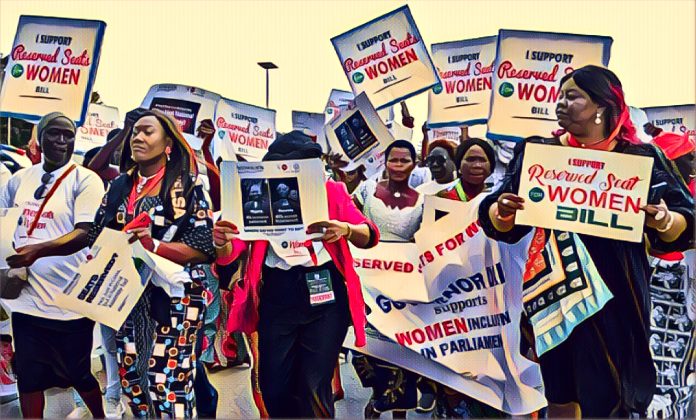KEY POINTS
- Over 36,000 women push for Reserve Seats Bill.
- Activists say reserved seats key to equality.
- Analysts warn women’s underrepresentation remains systemic.
At least 36,000 women in Bauchi State have urged the National Assembly to pass the Reserve Seats Bill aimed at boosting women’s representation in governance.
The women, under the Nigerian League of Women Voters, submitted signatures to the House of Representatives in support of the proposal. League chairperson Hajiya Zainab Mohammed said in an interview that the initiative followed months of grassroots advocacy across Bauchi communities.
Reserve Seats Bill gains wider support
Mohammed explained that the campaign attracted endorsement from men and youths after town hall meetings emphasized the need for gender balance in governance. She said many women remain deterred by intimidation, cultural barriers, and financial challenges in seeking office.
“Women face enormous pressure and limited resources,” she said. “But we’re encouraging them to stay engaged despite obstacles.”
The league, she added, attended public hearings at the National Assembly and formally presented the signatures supporting the Reserve Seats Bill.
Calls for women to lead from the grassroots
Mohammed said women contribute significantly to Nigeria’s democratic growth and community development, often using leadership positions to uplift others.
Similarly, women activists in Jigawa and Gombe States pressed for greater access to elective offices, citing the need to end gender exclusion and political marginalisation.
Balaraba Abdullahi, chair of the Jigawa Women Consultative Forum, said women must harness their numbers to take on more political responsibilities. But she lamented that rivalry among women and weak solidarity often undercut collective progress.
Reserved seats seen as path to equality
Political analyst Mustapha Yunusa argued that the Reserve Seats Bill would fix systemic underrepresentation. He noted that women currently occupy less than 10 percent of parliamentary seats, a figure he described as “unacceptable in 2025.”
Furthermore, quoting the legacies of pioneers like Margaret Ekpo, Gambo Sawaba and Funmilayo Ransome-Kuti, Yunusa said Nigeria must “build on their foundation by guaranteeing women’s legislative representation.”
He recalled how lawmakers rejected key gender bills in 2022, including the 35 percent affirmative action measure. “That setback underscored the urgency of legal reforms,” he said. “Reserved seats are no longer symbolic, they’re necessary.”



